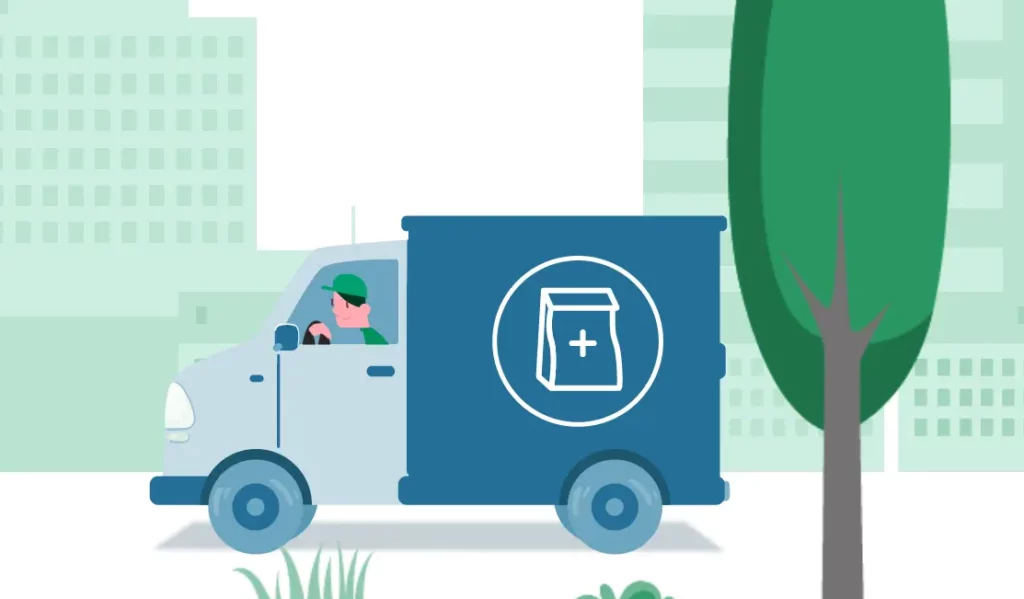Anxiety is something we all experience at times, but when it becomes overwhelming, it can affect our well-being. Whether you’re dealing with everyday worries or facing an anxiety disorder, this article offers practical strategies to help you lead a calmer and more fulfilling life.
We’ll also look into what anxiety is, its common signs, and how it impacts our physical and mental health.
What is Anxiety?
Anxiety is a natural emotion that we all feel from time to time. It’s like a built-in alarm system that helps us respond to challenges and threats. When you have a big presentation at work, a difficult exam, or face a challenging situation, it’s normal to feel a little anxious.
At its core, anxiety is your body’s way of preparing to deal with a perceived danger or stressor. It can make you more alert and focused, ready to face the situation.
But sometimes, this anxiety can become overwhelming, even when there’s no apparent danger. It might feel like a constant worry, fear, or unease that just won’t go away. This is when anxiety starts affecting your daily life and well-being.
How Does Anxiety Feel?
Anxiety can manifest in your mind and body in a variety of different ways, and as we’ll explore in the next section – being able to identify when you’re experiencing anxiety is very important in helping to lessen its symptoms.
Mental Symptoms:
- Constant Worry: One of the hallmark signs of anxiety is persistent worrying. It’s like having a never-ending loop of negative thoughts, often about future events or potential dangers. This worrying can be overwhelming and hard to control.
- Irrational Fears: Anxiety can make you excessively afraid of things that might not pose a real threat. These fears can range from specific phobias to a general feeling of impending doom.
- Restlessness: Feeling on edge or unable to relax is another common mental symptom. You may find it difficult to concentrate on tasks or enjoy activities due to this inner restlessness.
- Negative Self-talk: Anxiety often leads to a negative internal dialogue. You may be overly critical of yourself, doubting your abilities and judgement.
Physical Symptoms:
- Trembling or Shaking: You might notice trembling or shaking in your hands or other parts of your body when anxiety levels are high.
- Racing Heart: When anxiety kicks in, your heart might start pounding rapidly, even in the absence of physical exertion. This sensation can be uncomfortable and is often accompanied by a sense of impending danger.
- Shortness of Breath: Anxiety can make you feel like you’re struggling to catch your breath. This feeling of breathlessness is caused by rapid, shallow breathing.
- Sweating: Profuse sweating, particularly on the palms, forehead, or underarms, is a common physical response to anxiety.
- Muscle Tension: Anxiety can cause your muscles to tense up, leading to physical discomfort, headaches, and even jaw clenching or teeth grinding.
- Digestive Issues: Some people experience gastrointestinal symptoms such as nausea, stomach cramps, or diarrhoea when anxious.
- Fatigue: Chronic anxiety can be mentally and physically exhausting, leaving you feeling drained and fatigued even after a full night’s sleep.
How to Recognise Anxiety
Self-awareness plays a significant role in managing anxiety. By becoming attuned to your emotions and triggers, you can gain better control over your anxiety. Here’s how:
- Recognising Triggers: Identify the situations, thoughts, or events that tend to trigger your anxiety. Once you know your triggers, you can work on strategies to mitigate their impact.
- Monitoring Symptoms: Pay attention to the physical and mental symptoms you experience when anxiety strikes. This awareness allows you to intervene early with calming techniques.
- Emotional Regulation: Learn to manage your emotions by acknowledging them without judgment. Mindfulness and meditation can be valuable tools for developing emotional awareness.
Positive Lifestyle Changes to Deal with Anxiety
It’s important to understand that dealing with anxiety doesn’t simply boil down to “getting over it” mentally, there are also things you can change physically that will help you reduce your anxiety in the future. These include:
- Eating a healthy, balanced diet: consuming whole grains, fruits, veggies, lean proteins, and omega-3 fatty acids can help calm your mind. Whereas foods that contain too much sugar or caffeine can worsen your anxiety.
- Exercising regularly: getting enough exercise into your weekly routine releases mood-boosting endorphins and improves your overall confidence.
- Getting enough sleep: Poor sleep and anxiety are closely linked to each other, so it’s important to put together a sleep schedule (try not looking at your screens for an easier time falling asleep)
Tips to Reduce Your Stress Levels
Reducing stress is vital for managing anxiety. Here are some simple techniques:
- Mindfulness, Meditation & Yoga: Finding a few minutes everyday to practise meditation can help you refocus on the things that are important, while letting go of the things that are causing your anxiety.
- Deep breathing exercises: In moments of anxiety, taking a few seconds just to breathe in slowly and deeply can help you to lessen your symptoms and refocus on what’s ahead.
- Talk about your problems: Confiding with those closest to you, or finding a support group, can really help you to deal with the underlying issues behind your anxiety.
Get Your Anxiety Medication with Healthera
If you’ve been prescribed medication like mirtazapine to help combat your anxiety, you can place your order online using the Healthera app or website.
It only takes a few minutes to set up your prescription for collection ro home delivery from your local pharmacy.
To get started, simply click the button below:

